Alan Tait: Scottish Rugby could fall behind without semi-professional league
- Published
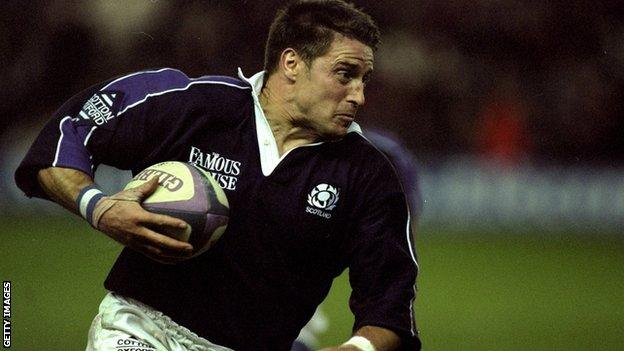
Alan Tait won 27 caps for Scotland, helping the national team clinch the last-ever Five Nations title in 1999
Alan Tait believes the creation of a domestic semi-professional league is key for Scotland to keep pace with bigger rugby nations.
The "Super Six", unveiled by Scottish Rugby on Saturday, replaces the current all-amateur BT Premiership from 2019.
Former Scotland centre Tait, 53, has taken up a scouting role as part of broad national restructuring aimed at enhancing player development.
"We need to think of ideas to keep us in the race," Tait said of the changes.
"This is just another way of getting more young Scottish talents playing at a higher standard and getting them through the ranks."
With World Rugby extending its residency qualification period from three to five years, Tait says Scotland can no longer rely on overseas imports with no Scottish heritage - such as South African-born WP Nel, Josh Strauss and Cornell du Preez - to prop up its Test pool.
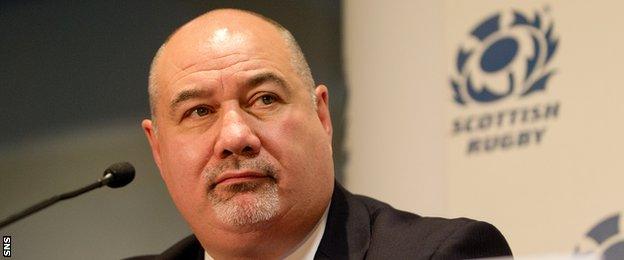
SRU chief executive Mark Dodson says the new league structure offers "a fresh start to every club"
"We've had some great players in the last few years come over from South Africa and New Zealand, get residency and play for us," he said. "If it hadn't been for WP Nel at tight-head, we'd have probably struggled a lot more.
"That avenue may close now - it's the Scottish-qualified players we're after now.
"The more we can get playing at a high level, the more there are to select from. That's how England are getting better and better - the numbers and talent they generate through their academies and Premiership teams is pretty frightening.
"The standard in the four Scottish academies has rocketed in the past two years. We've got an identity flowing through these kids now, how Scotland want to play and how the game should be played.
"We've got to give them opportunities and also the good young coaches out there. We need to get them into systems and test them at another level."
Scottish Rugby's new domestic set-up |
|---|
A semi-professional "Super Six" replaces the amateur BT Premiership |
Each of the six clubs will comprise 35-man squads, with funding allocated for head coaches, strength and conditioning, and analysis support by the SRU |
Directly below the Super Six will be an all-amateur 12-team Championship |
This will sit above a three-tier National League system |
Scottish Rugby hopes the Super Six will help bridge the gap between the upper echelons of the amateur game and Scotland's two professional sides, Edinburgh and Glasgow Warriors.
Tait, who won 27 caps and switched codes to represent Widnes and Leeds in rugby league, accepts there may be dissenting voices across the club game but urges any detractors to "look at the bigger picture".
"I know lots of people out there will say it's going to be the ruination of the club game, but I think we've got to back this," the 1997 British and Irish Lion told BBC Scotland. "You've got to think of what the players want.
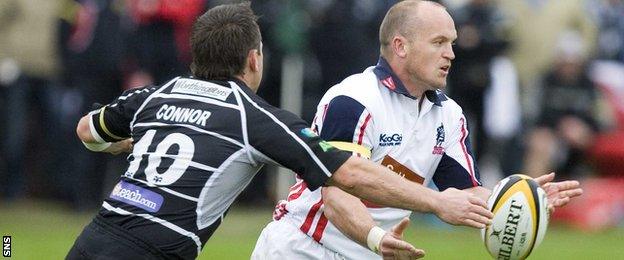
Scotland head coach Gregor Townsend finished his playing career with the now-defunct Border Reivers
"I'm pretty sure the top players in the Borders would love to play at the same club and know they're only one little step away from being recognised in professional rugby.
"It's about getting a tier just below so they can make that step much, much easier.
"If there's a team in the Borders, they're obviously going to take players from Hawick, Gala, Kelso, Jed-Forest, Selkirk, so the best players will end up at that club.
"I think that's what a lot of people will be unhappy about and say it's ruining our game below that, but we've got to look at the bigger picture.
"I remember having this argument years ago when professional rugby first came into Scotland and I'd just come back from playing rugby league.
"The amount of people who said professionalism was the ruination of club rugby and we should leave it to the clubs. Looking back at that now, we could never have done that and stayed in the race."
In his new position, Kelso native Tait will scour the north of England for Scottish-eligible talent, with former Scotland captain Rory Lawson taking up a similar role around the greater London area.
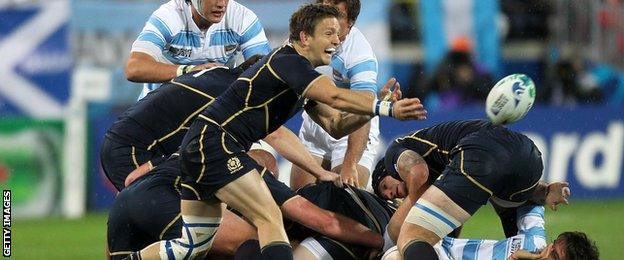
Rory Lawson has also been recruited by Scottish Rugby to help target Scots-qualified youngsters in England
Many of the players he aims to recruit are already enrolled in the academies of English Premiership clubs, such is the extent of their respective scouting networks.
"England Under-18 had five players this year that could qualify for Scotland," Tait said. "There are youngsters out there we're maybe missing a little bit and, because they didn't get selected for England, they maybe think that's it, but if they have got Scottish heritage, we want them to come along.
"I've been told to find players that are good enough to play for Scotland, not just represent the age grades.
"I'm looking at aged 18 and upwards, the ones we think will be really good professionals. My job is to look for the ones at the top of the tree."
- Published6 August 2017
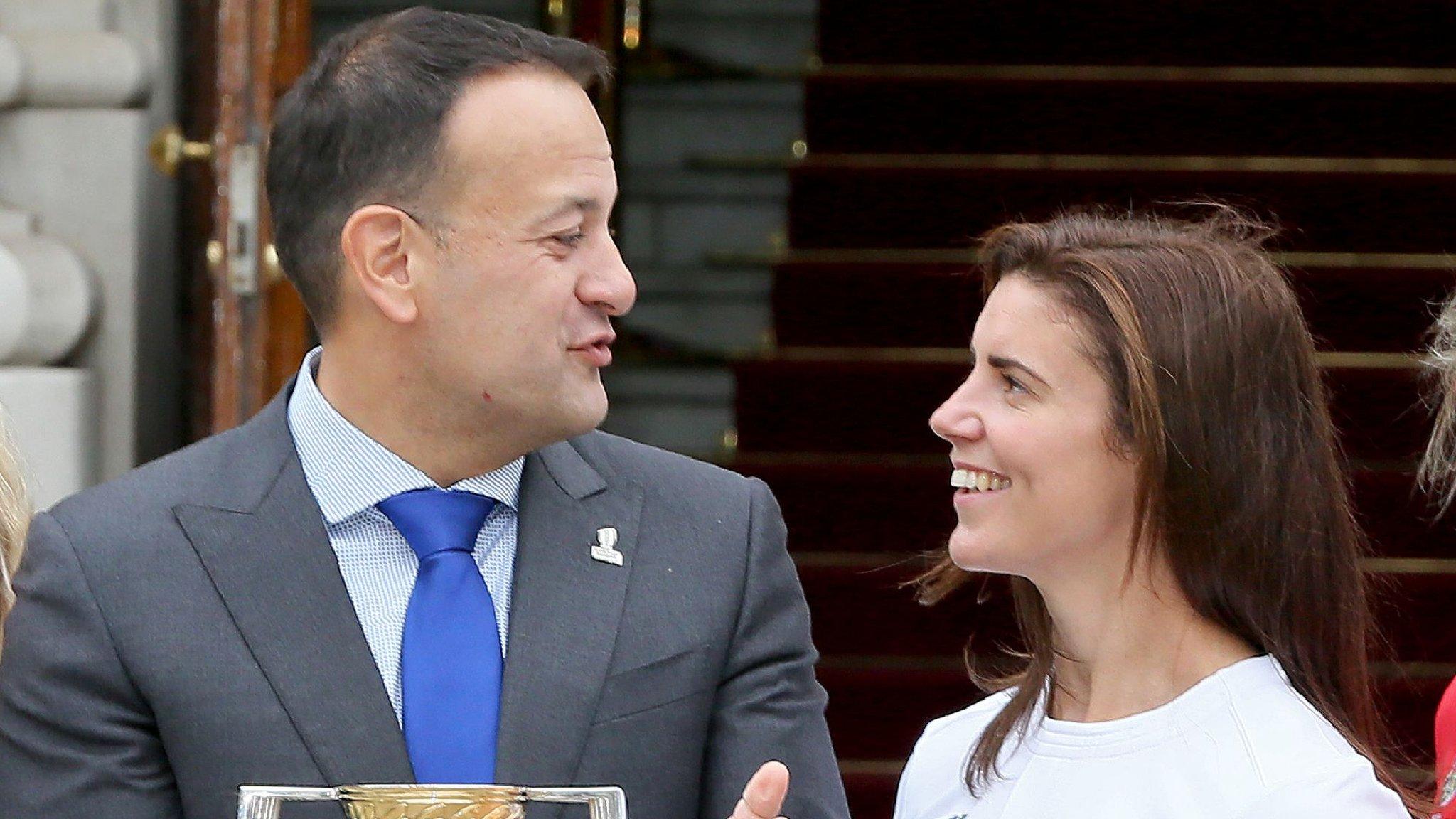
- Published6 August 2017
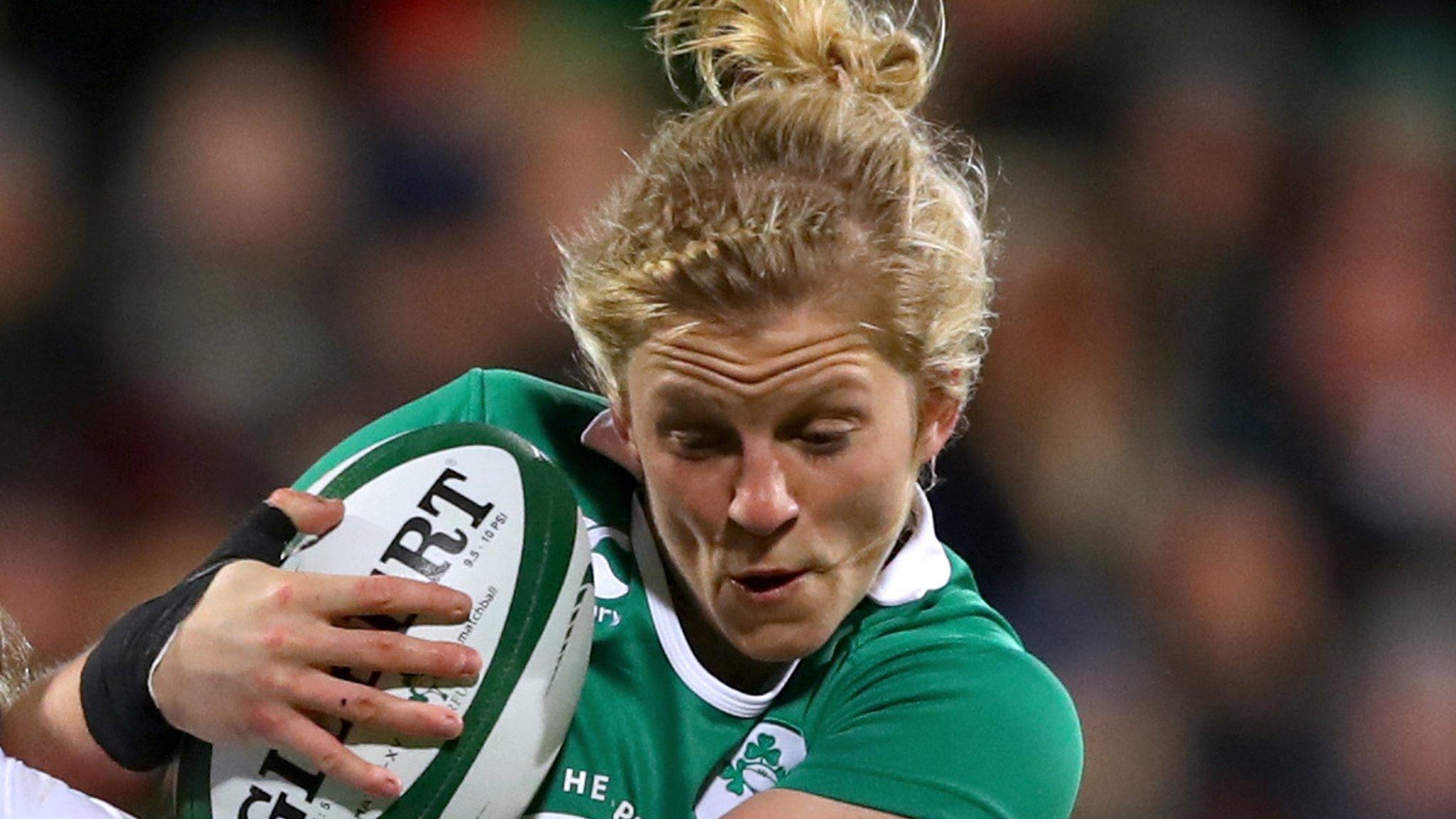
- Published6 August 2017
